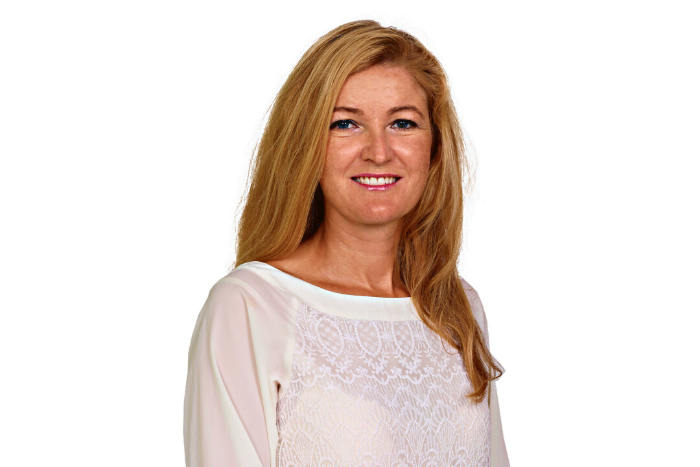Danat Al Emarat’s Dr Tina Steinbacker, Specialist, Gynecologist and Obstetrician, emphasises the importance of early detection of cervical cancer and preventive measures.
PARTNER CONTENT: January is Cervical Cancer Awareness Month and according to a 2020 report by World Health Organization (WHO), over 600,000 women, from across the world, were diagnosed with cervical cancer.
Out of the 600,000 women detected with cervical cancer, over 340,000 sadly succumbed to the disease.
Over the years, health experts have been stressing the importance of early detection and prevention as a first step in the fight against cervical cancer, of which Danat Al Emarat has been at the forefront.
Consequently, greater awareness, including early detection and timely vaccinations, has seen the number of women diagnosed with cervical cancer, as well as death rates, decrease.
Debunking the myths
Many women believe that the reason they have contracted cervical cancer is that they are not taking very good care of their health and surroundings, according to Dr Tina.
“Cervical cancer is caused by Human Papillomavirus (HPV). It is not an airborne or waterborne disease; one cannot contract cervical cancer from public toilets or saunas either,” she says.
From workshops to treatment recommendations, patients are provided with a plethora of information and support offered at Danat Al Emarat facilities.
Systems are also put in place that remind patients about any follow-ups or upcoming tests and treatments for which they need to prepare.
Despite an abundance of data, some women, according to Dr Tina, are still unable to grasp the severity of missing regular screenings for the early detection of cervical cancer.
Dr Tina adds that while there are several types of cervical cancer, HPV infection is the leading cause.
She elaborates on two kinds of HPV infections – one that grows outside the cervix, inside the vagina called squamous cell carcinoma, and the other which grows inside the cervix, known as adenocarcinomas. Both are sexually transmitted.
Recognition and recovery
“Since cervical cancer takes years to grow, early detection can go a long way,” says Dr Tina. “If a woman is infected in her early 20s and fails to go for her regular Pap smear, she’s at risk of developing cervical cancer by the time she is in her 30s or 40s.”
Dr Tina strongly recommends that sexually active women, ideally between the ages of 21-45, should schedule a Pap smear.
“This will determine if they are HPV positive or not. If the results of the Pap smear are normal, they are then requested to schedule another test after one year.”
Upon two consecutive HPV negative results, the patient is then advised to schedule their third screening after three years.
“If you experience any abnormal vaginal discharge between your menstrual cycle, vaginal spotting after intercourse, lower abdominal distress or experience pain during intercourse that you didn’t have earlier, schedule a pelvic examination right away,” she adds.
Women can schedule their Pap smears and pelvic examinations at Danat Al Emarat.
If abnormal or unusual cells were discovered during a Pap smear, a proper treatment plan is shared with them based on their age and other health conditions.
“For high-risk genotype, the woman is called in for a colposcopy, which uses a special kind of microscope called a colposcope to examine the cervix for any abnormalities,” explains Dr Tina.
“If there is any cause for concern, a biopsy is conducted after which a histopathology report is generated. This determines the stage of cancer and the next step in the treatment plan.”
For treatment, patients are referred to a government facility. In the case of pregnancies or treating younger women looking to get pregnant, the treatments are tailor-made.
However, Dr Tina’s key message to women is the importance of early detection, prevention and vaccination as a first step in the fight against cervical cancer.
Light at the end of the tunnel
In terms of the different types of cancer, cervical cancer is the fourth leading cause of death, with breast cancer being the first among females.
However, there is light at the end of the tunnel. Vaccines developed years ago, still have enough antibodies to fight Human Papillomavirus (HPV), says Dr Tina.
The HPV vaccine, which is available in the UAE, can be administered to girls aged nine and above, with the UAE government already administering the vaccine, free of charge, to girls in schools.
“For girls under 13 years old, two doses are given at bi-yearly or yearly intervals,” explains Dr Tina. “For girls aged 13 and older, the second dose is administered one month after the first month. The final dose is given six months after the previous one.”
Administered in the arm, the vaccine has no adverse effects and is proven to be highly effective, cutting down the chances of cervical cancer by 99 per cent. However, Dr Tina warns that those vaccinated may suffer a slight headache, nausea or soreness in the vaccinated area.
For more information, please visit danatalemarat.ae/service/gynecology
Follow Yalla – Abu Dhabi Life for all the latest news across the capital and beyond
Image courtesy Unsplash and Danat Al Emarat Hospital



